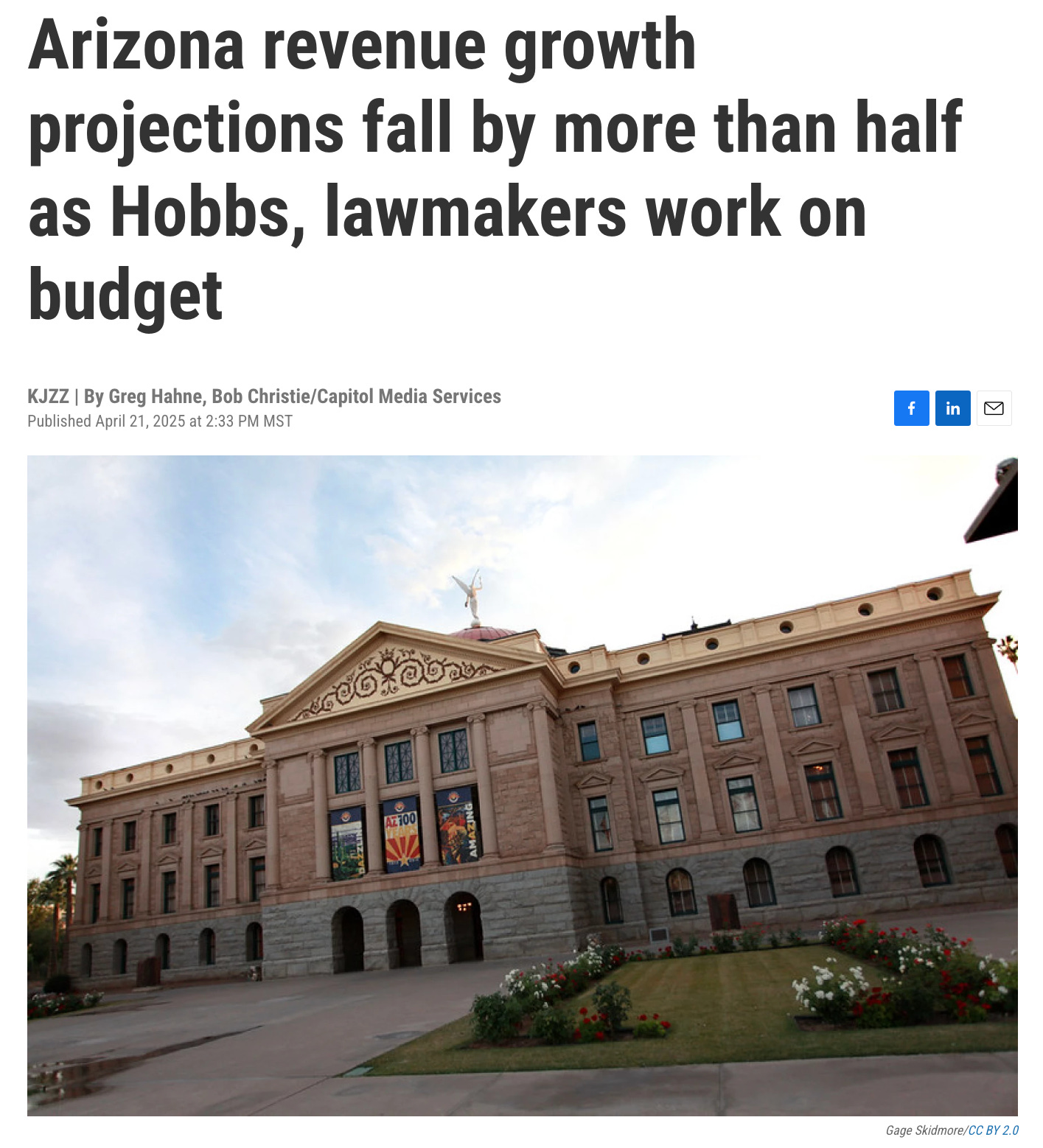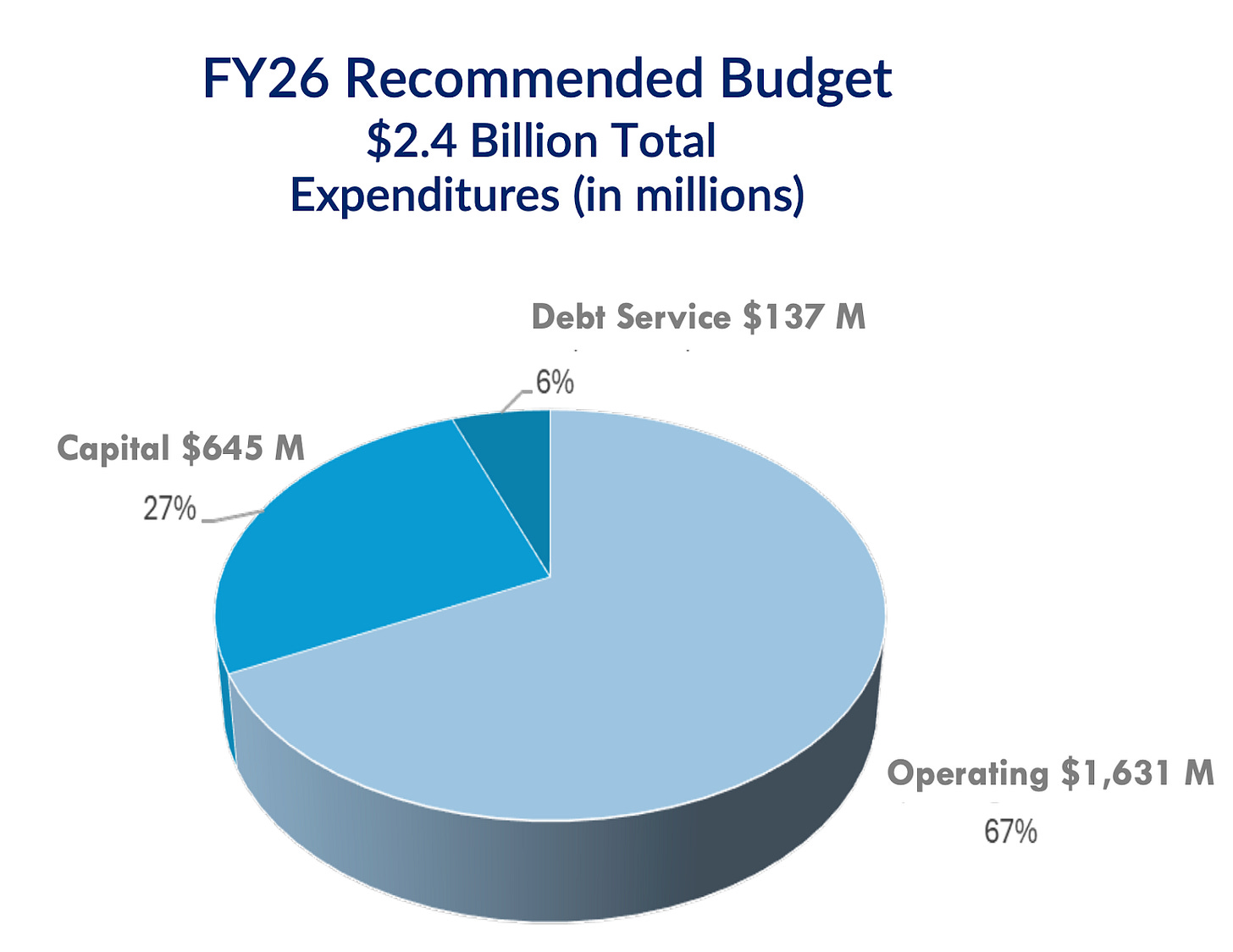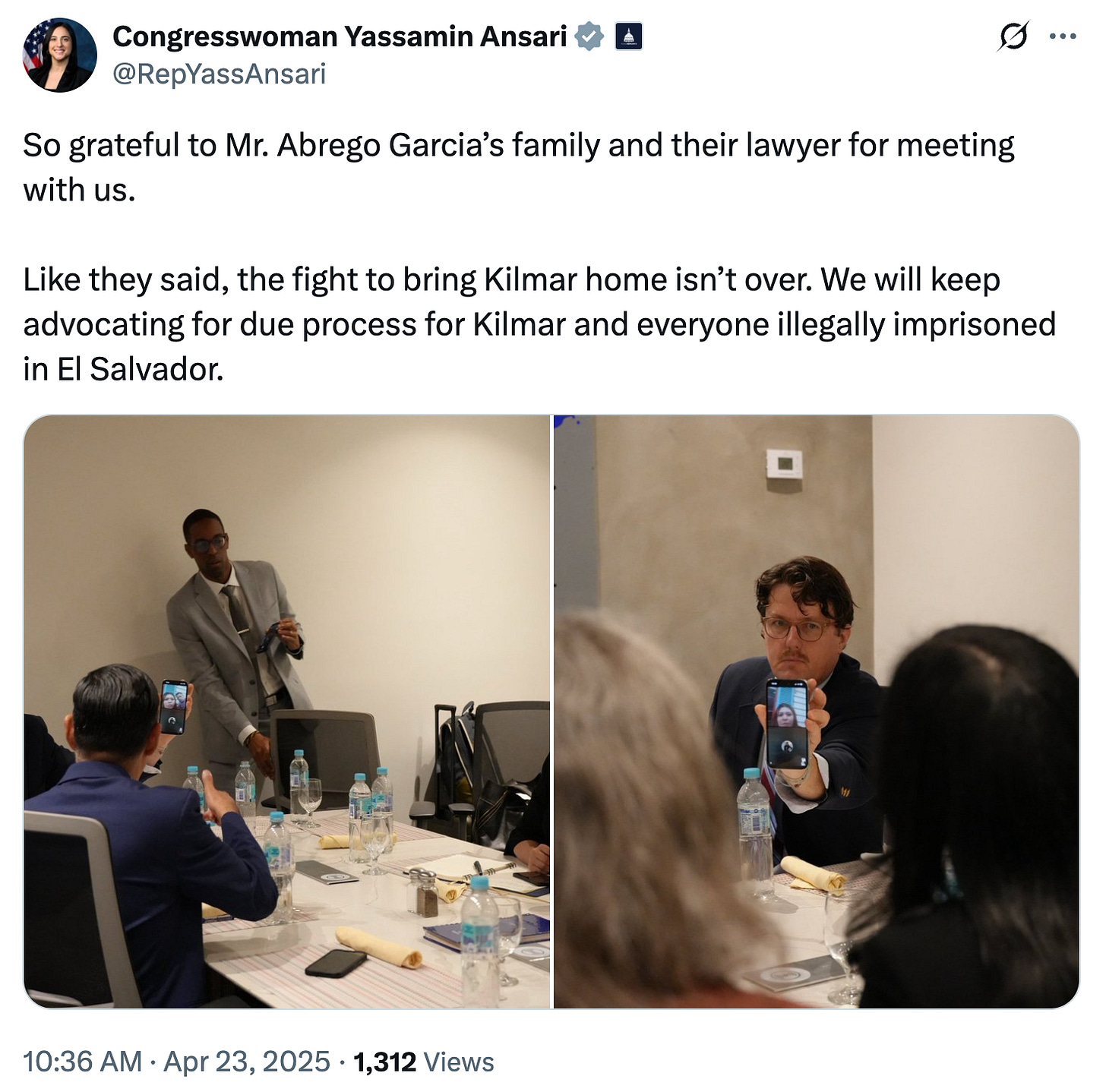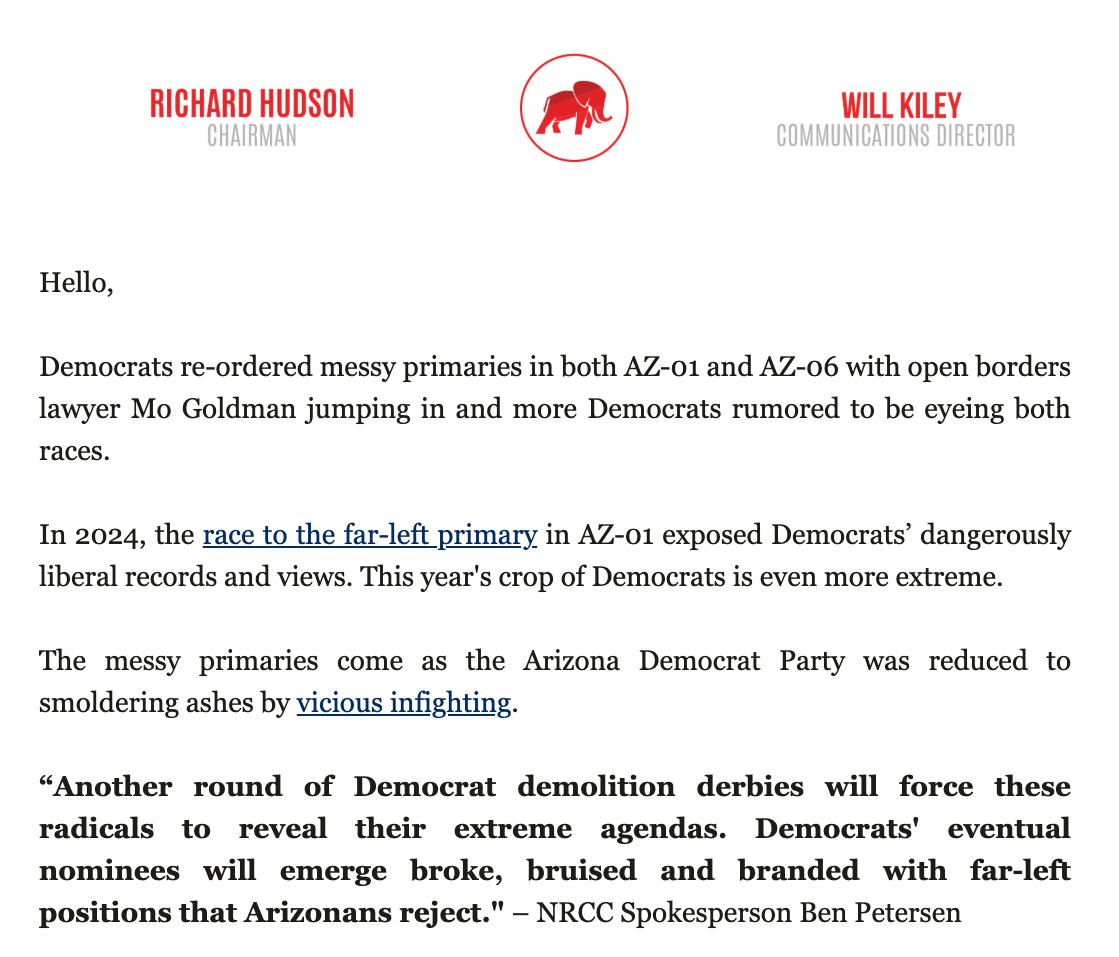Council counting on chaos
Budgeting without a crystal ball … Tom Horne comes to town … And it’s never too early to bash your opponents.
Like every family that has to manage a household budget, Tucson City Council members deal with a barrage of uncertainty as they figure out how to make ends meet.
That uncertainty was on full display as the Council members considered City Manager Tim Thomure’s $2.4 billion recommended budget at their Tuesday meeting.
Their discussion was littered with question marks, whether they were talking about tariffs, shoppers at Tucson malls, or even the bond market.
They don’t know if the economy is about to go into a recession, which would devastate local sales tax revenue.
Ever since President Donald Trump placed tariffs on the whole world, the stock market has been on a wild ride and economic indicators are blinking red.
That worried Mayor Regina Romero, who pointed out Mexican shoppers would be reluctant to come spend their money in Tucson, and city residents might pause their own shopping if they think a recession is coming.
The Council members don’t know what the Trump administration will do next, so they have to hunker down and deal with whatever comes.
Is another round of cuts to federal grants headed their way? If it is, then city officials will have to find a way to make up for the $280 million in federal grant money they haven’t spent yet.
The Council members also don’t know what the state budget will look like.
Gov. Katie Hobbs is negotiating with GOP lawmakers, so it’s still not entirely clear how much state-shared revenue Tucson will get.
The Council members also don’t know when bond rates will return to some semblance of normalcy, so they’re waiting to issue new bonds that could fund local parks and infrastructure projects.
City officials want to issue another general obligation bond for voter-approved Prop 407 projects, Assistant City Manager Anna Rosenberry said on Tuesday, but they’re waiting for bond rates to drop, or at least stabilize.
Beyond what was discussed, even more uncertainties loom.
Republican state lawmakers sent a dozen measures to the ballot last year, as a way to get around the Democratic governor’s veto stamp.
Those ballot measures could cost the city big dollars, either by raising costs to enforce new laws or by raising the city’s vulnerability to expensive lawsuits.
For example, lawmakers put Proposition 312 on the ballot last year and voters signed off on it. Now the Council is reviewing city ordinances to avoid getting sued for not cracking down on homelessness hard enough.
This is the world of local government, where you can’t print money and you can’t control what officials higher up in the food chain decide to do.
What they expect
Although the Council has to deal with uncertainties beyond its control, it can still make educated guesses.
Council members aren’t expecting the overall city budget to grow much, basically hovering around $2.4 billion.
They also expect to spend less in certain departments, including $18 million in cuts Romero highlighted on Tuesday.
The Council members weren’t exactly thrilled with the money they expect the state to share with Tucson.
The city’s share of state income tax revenue could be just $109 million next year. That’s $7.6 million less than this year, and $35 million less than what the city got two years ago.
Sales tax revenue from the state should come to $84 million, which is $2.3 million less than their previous forecast and reflects state officials’ increasingly pessimistic outlook for revenue next year.
So what does all this mean for you? Consider some of the issues raised by Council members on Tuesday.
Depending on what they decide, you might see cuts in park services and wind up paying for those “Ready, Set, Rec!” vans to show up at your neighborhood park.
Going out to dinner or a bar in downtown Tucson might get a little pricier if the Council decides to raise rates at parking meters.
Your friend from out of town might pay higher taxes when they stay at a local AirBnB. Before you know it, they’ll be sleeping on your couch and eating all your cereal.
The Council might hire more police officers or buy better equipment for the officers already on staff. If you’d rather they invest in non-police solutions, that might not be what you want to see your city do. Or it could be exactly what you’ve been asking them to do for the past few years.
The Council might decide to get rid of the city’s fare-free bus policy, which would add a daily cost for a lot of Tucsonans and slow down a larger push for better public transportation.
The popular early education program known as PEEPs might get cut, which would make life more stressful for thousands of local low-income families.
That’s a lot of issues, but it’s not nearly all of them. And every one of them is wrapped up in the discussions the Council members will have over the next month or so.
Did we do it? Did we write about a city budget without boring you to tears? If so, please consider smashing that button to help us keep doing it!
As the City of Tucson’s budget process unfolds, here are the key dates to keep in mind:
May 6: The Council holds a public hearing on the city manager’s recommended budget
May 20: The Council decides whether to adopt a tentative budget, which sets the city’s spending limit.
June 3: The Council holds a public hearing on the tentative budget and tax rates before adopting the final budget
June 17: The Council sets the tax rates
There’s $2.4 billion on the table, along with all the services you’ve come to expect from your city government.
We’ll be paying close attention to how the budget talks unfold, and we’d like to know what you want to see highlighted, picked apart, or questioned.
What city department would you cut? What deserves more money? Tell us about it in the comments section.
Our apologies for all the Trump-related items today. There is so much going on, we really don’t have a choice. Sigh.
Another hotline: Superintendent of Public Instruction Tom Horne came to Marana to encourage people to call in complaints if they see DEI policies at their local schools, Arizona Luminaria’s Shannon Conner reports. The Trump administration is cracking down on DEI, and telling schools that if they teach DEI they’ll lose out on federal funding.
Asking for protection: A long list of high-profile faculty at the University of Arizona are asking school leaders to push back against the Trump administration’s efforts to control universities, the Arizona Daily Star’s Prerana Sannappanavar reports. They’re worried about funding cuts, “unlawful” strings attached to grants, and international students and scholars who are “living in fear of deportation.”
Getting the story straight: The U.S. Attorney’s Office should probably revise its press releases, Star columnist Tim Steller writes, as he unfolds how a 19-year-old American citizen spent a week in federal custody against his will. With a nod to his colleague Emily Bregel and Arizona Public Media’s Danyelle Khmara, he outlines how the Albuquerque man, who has learning disabilities and is illiterate, ended up being detained after speaking to a Border Patrol Agent just before Easter. Officials missed a number of red flags, including that he encountered agents in Tucson, not Nogales, as officials had claimed.
All quiet on the southern front: Despite a ramp-up in rhetoric out of the White House, Border Patrol agents in Southern Arizona are saying things are quiet, the Tucson Sentinel’s Paul Ingram reports. Even their dogs are getting bored as increased patrols on the Mexican side of the border wall have led to fewer migrants trying to cross. The federal government also plans to start construction of 25 miles of new border wall in the environmentally sensitive San Rafael Valley in May.
Tomatoes take a hit: Trump officials will start adding fees to tomatoes imported from Mexico in July, the Wall Street Journal reports. Mexico accounts for 70% of the fresh tomatoes sold in the United States, and they are the lifeblood of the massive produce importing industry in Santa Cruz County. Mexico officials are negotiating with Trump officials, but if they don’t reach an agreement, then tomatoes will be one of the first everyday products hit by Trump’s tariffs.
We never thought we’d have to say this, but we might need some help buying tomatoes.
No tariffs on laughing: In one bit of news not tied to Trump, downtown Tucson is about to get a new comedy club, the Star’s Gabriela Rico reports. The Punch Line Comedy Club will move into 119 E. Toole St. as soon as remodeling work is done, with some help from the Rio Nuevo board. When they’re all set up, they’ll put on about 400 shows a year.
We asked, and you answered.
Earlier this week, we did a test run of the People’s Agenda, where we highlighted Tucsonans who were agitating for change as the Trump administration tries to dismantle civil society.
We did a quick poll and the response was overwhelmingly supportive. More than 160 Tucson Agenda subscribers took a moment to weigh in, and a whopping 95% said they want to see more of the People’s Agenda.
That seems clear us! We’ll be sure to go to rallies and protests, and we’ll keep finding ways to get the voices of regular people into the Tucson Agenda, rather than just politicians and bureaucrats.
Tell Joe what’s coming up by sending him a quick email at joe@tucsonagenda.com
Everybody in the water world is talking about the high-stakes negotiations over the Colorado River right now.
Over at the Water Agenda, we’re taking a deep dive into a big part of the oncoming flood of news about the river: the Hoover Dam.
Come for the news, stay for the absurd number of puns in tomorrow’s edition!
You haven’t made it until the other party starts sending out attack ads.
Congratulations to Democrat Mo Goldman — who announced on Monday that he’s running for Congressional District 6 against U.S. Rep. Juan Ciscomani next year — for getting labeled by the National Republican Congressional Committee as an “open borders lawyer.”
While we could point out that Goldman has not even qualified for the Democratic primary ballot yet, we know it is never too early to throw shade in professional politics.
Republicans are betting on a crowded primary in Arizona CD6, saying the quiet part out loud that they want the Democrats to fight with each other.
“Another round of Democrat demolition derbies will force these radicals to reveal their extreme agendas. Democrats' eventual nominees will emerge broke, bruised and branded with far-left positions that Arizonans reject,” NRCC Spokesperson Ben Petersen wrote.
















It’s time to drag out that old study about forming a metro government with Tucson and Pima County. (Of course, based on the perceived “successes” of PAG, the RTA and Rio Nuevo, there may not be a huge appetite for metro anything). Pima County is urbanized and cities can no longer depend on state-shared revenues, even those that are built into the state constitution. Perhaps the old “doughnut” city to surround Tucson deserves another look (and an explanation for those who forgot the concept).
Yes, you did it: You wrote about Tucson's budget without being boring.
That said, not enough is written by you, or anyone else for that matter, about the elephant in the room who as you mentioned is clearly responsible for the worldwide chaos created by Trump.
I'd like more reporting on how Trump's and his family's personal fortunes are growing while so many people, businesses and local governments are traumatized by Trump's flagrant grifting and abuse of power.